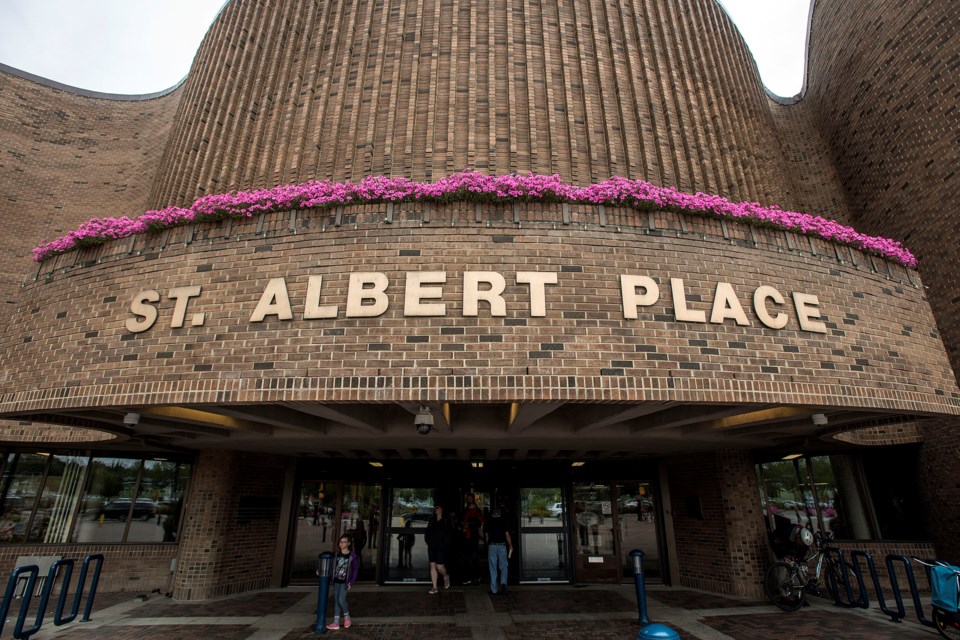Multiple motions put forward by a St. Albert city councillor to stave off impending tax increases in the 2023 RMR budget and beyond were shot down by council this month.
Coun. Shelley Biermanski put forward three motions (a fourth was rescinded after council discussion) intended to reduce the repair, maintenance, and replacement (RMR) budget in 2023 and beyond.
Council has directed the city to whittle down a projected seven-per-cent 2023 tax increase and present options within a three- to five-per-cent increase during fall budget deliberations.
Changes to the RMR budget do not have a direct tax impact.
“I’m digging in the weeds because we need to be digging in the weeds," Biermanski said during the June 7 city council meeting in defence of the motions.
The first motion, which was defeated with only Biermanski in favour, would have removed the Utilities Master Plan (UMP) scheduled to be completed in 2024.
Regan Lefebvre, the city's senior manager of utilities, told council that although the last UMP was completed in 2021, the land St. Albert acquired through the recent Sturgeon County annexation was a "driving force" behind the need to complete another UMP.
UMPs are usually completed every five years, Lefebvre said.
The UMP completed in 2021 was originally scheduled to be completed in 2018, but was postponed due to the development of the city's municipal development plan, called "Flourish."
Biermanski's second motion sought to remove the $50,000 for information technology office automation set aside in the 2023 RMR budget.
Joanne Graham, the city's senior manager of information technology, told council June 7 that the $50,000 is used "specifically to allow for emergent needs throughout the year."
"An emergent need may be that an iPad needs to be acquired for a new fire vehicle that was not considered, perhaps as part of a different capital project," Graham said.
The office automation funding is also used to purchase things such as software licences or tablets, and to ensure standardized technology, Graham said.
"I just find that it's a fund that's only there on a first come, first served basis, and it's not always dedicated to those who always need it," Biermanski said during the council meeting.
The motion was defeated with only Biermanski in favour.
Biermanski's third motion sought to remove $50,000 from the information technology life-cycle replacement budget each year.
"IT services perform life-cycle replacement per council policy C-FS-01 ... in the policy, as exists, mobile telephones are replaced every two years; laptops, tablets, rugged devices every three years, so everything's replaced fairly often compared to what I'm used to in the private sector," Biermanski said.
During debate on the motion, Coun. Ken MacKay said, "wWe’re getting down into the weeds."
"Yes, we can say we’re going to replace them every two years, [but] I’ve had this [cellphone] since I was elected in 2017. These are just guidelines that are put forward by our subject matter experts that work within the city and know what our system needs are, know what the equipment needs are," MacKay said.
Coun. Natalie Joly echoed MacKay's comment, saying, "In my four-an-a-half years I think this is the most in the weeds that I’ve ever seen this council get ... I really think our plans need to support the sustainability and the success of our municipality."
Mayor Cathy Heron also voiced concerns on the motion.
"You can reduce it by $50,000, [but] you’re not actually directing them to not buy cellphones every two years," said Heron.
"This is not directing policy, this is just taking $50,000 randomly out of the budget. These one-offs are just not really the appropriate way to be trying to interject what your beliefs are into our processes,” Heron said.
“I’m not interjecting my beliefs into this," said Biermanski. "I’m seeing it as still spending $700,000 a year on IT. That’s a large amount of money."
The motion was defeated, with Biermanski, Coun. Sheena Hughes, and Coun. Mike Killick in favour.
A fourth motion put forward by Biermanski was to remove funding for transit bus life-cycle replacement and postpone "major purchases" until council knows more about how the Edmonton Metropolitan Transit Services Commission will operate.
The city's transit fleet manager, Tom Kumka, told council that the 2023 funding for transit life-cycle replacement included in the RMR budget will be put towards the purchase of five handi-buses.
The motion was rescinded after council discussion.
"I know sometimes that there’s smaller savings in certain things and bigger savings in other things, but they all add up and that’s what affects the tax base at the end of day," Biermanski said in an interview.
"There’s been a lot of decisions over the last few years that kind of pushed tax increases forward to the next years looking forward," she said. "We have been warned that there’s going to be tax increases.
"Anything that I can find that I see as waste, that’s what I want to tackle.”
MacKay said he could see what her intentions were with the motions she attempted.
"I appreciate Coun. Biermanski’s thoughts and her efforts to look at city money, because she’s absolutely correct, we are facing some big challenges, not only in our RMR, but also in our ongoing levels of service,” MacKay said in an interview.
“This wasn’t really the right process to deal with what I think her intent was around impacting the future budgets."




